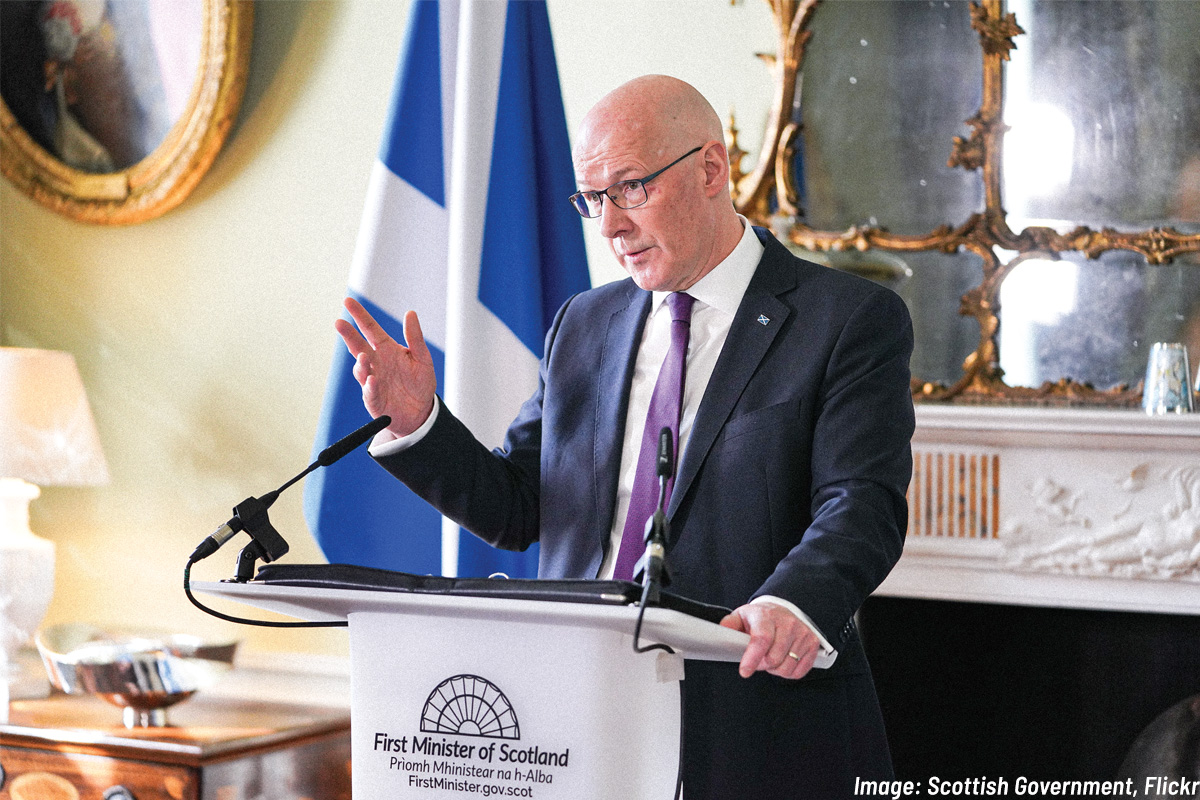The Glasgow North East By-election was billed by political
commentators as a final test for Gordon Brown and his leadership of the Labour
Party. If he was to loose another Labour heartland seat in Glasgow to the Scottish National Party (SNP)
then he would struggle to hold on to his position as party leader. Despite many
early predictions to the contrary, Labour held on to the seat (formerly held by
the speaker and therefore previously benefiting from no opposition from Tories
or Lib-Dems) and actually managed to increase their percentage of the vote. But
this hides the real story. Labour got 3,000 less votes than they did in 2005, these
votes did not fall to the Nationalist, who lost 1,000 votes on last time but
instead fell into mass abstentions making this the lowest turn-out in a
Scottish by-election ever.
It’s
clearly evident that this is not the great vindication of Gordon Brown’s
premiership that William Bain, the Labour candidate, said it was in his victory
speech. This part of Glasgow
has been voting Labour without fail since 1935, so keeping the seat does not
signal the end of Scottish Labour’s time in the political wilderness. What is
also telling is the SNP’s terrible performance, particularly compared to the
Glasgow East by-election last year when the SNP managed to take a seat that had
a 12,000 Labour majority in 2005. What has changed since then is that the SNP
has been running Scotland
as a minority government for two and a half years and in that time managed to
do nothing of any significance apart from reneging on almost every one of its
electoral pledges. Scottish workers do not see the SNP as an alternative to the
Labour Party that will prevent them being hit by the effects of the capitalist
crisis. But equally, with the New Labour clique still very much in charge of
the Labour Party in Scotland and nationally, they are not offering a left wing
response to the crisis and are in fact voting through cuts in services in the
local councils they still control, just as their colleagues in Westminster are.
As such the main result of this ballot was neither the Labour victory nor the
SNP loss but a mass abstention by traditionally Labour voters.
The main rumour the media were
peddling before the count was that the BNP had come third and managed to keep
their deposit. In the end they came a close fourth to the Tories with 4.92% of
the vote, just below the 5% threshold they needed to keep the deposit. The BNP
have claimed this as a great victory but in reality only got 93 more votes than
they did last time and were disappointed at not coming third, though they
wouldn’t admit it. This result starkly shows what Socialist Appeal has
consistently argued about the BNP’s recent electoral success: that it is
characterised by Labour abstentions and the odd disillusioned Labour voter
turning to the BNP in despair. We cannot discount the threat the BNP pose if
they continue to make gains electorally, but we must argue that they can only
be opposed politically if Labour stands on a firm socialist programme that addresses
the problems of all working class people, regardless of race. We must contrast
this tactic to that of ‘Unite Against Fascism’ who, as they did during the EU
elections, ran a “vote anybody but the BNP” campaign in the constituency. This
fails to answer the genuine concerns that workers have about housing, jobs and
services that the BNP pray on to wins a small number of votes.
In amongst the also rans, that
included two former Big Brother contestants of which Tommy Sheridan was only
one, there were three socialist candidates. The combined ‘left vote’ was lower
than that of the BNP with the vast majority, 794, going to Sheridan, standing for Solidarity. This
indicates most of it was an endorsement of an individual rather than an
organisation. That the SSP could only poll 152 votes, coming behind John
Smeaton, the apparent hero of the attempted terrorist attacks on Glasgow
Airport in 2007, who stood for the Jury Team (whoever they are), clearly raises
questions for its members and supporters. Since 2007 the SSP has consistently
failed to deliver electorally, having lost all of its elected representatives
bar one councillor and performed disastrously in both the Euro-elections and
several by-elections. Surely this shows that the project of a new workers’ party
in Scotland
has proved impossible to realise. The SSP still contains many good working
class activists and a layer of young people, yet these people choose to spend a
great deal of time and effort standing in hopeless election campaigns. If the
SSP was to work in the trade unions more effectively and act as a coherent left
presence they would see the necessity of fighting for change in the Labour
Party.
It’s
impossible to completely predict the results of the coming general election or
of the Scottish Parliamentary elections in 2011. The recent results indicate
that the SNP will find it more and more difficult to pose as a left alternative
but also that the mass of workers are not willing to endorse the current
leadership of the Labour Party. In Scotland we have not felt the brunt
of the coming public sector cuts which will (we have been told) have to be made
when the block grant for 2010, which the Scottish Government relies on for most
of its funding, is announced. In office the SNP have conclusively shown that
they are unable and unwilling to break from big business and will have to make
public spending cuts at the behest of Westminster.
It seems likely that while the Tories will win the next general election they
will make, at best, few gains in Scotland. For the Labour Party to
be serious about fighting the Nationalists it must stand on a bold socialist
programme against cuts and for full fiscal autonomy for the Scottish Parliament
so that it can effectively resist Tory attacks from Westminster. It’s also clear that the current
leadership will not do this. They are tied to the national government who are
already implementing Tory cuts and will only go further if they were to win the
next general election. In reality there can never be socialism in Scotland without it being tied to a wider
socialist Britain.






